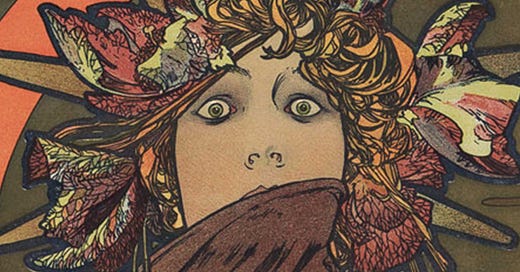God’s Lollipop
It is a personal rule of mine never to argue about God with someone who is shaving your neck with an open-razor. Nevertheless, the young man in the all but empty barbers was a soft and friendly Kurd and so when he got onto whether I had ‘read the Koran’ I gingerly followed along until the shave was over. Next to the till there was a small paper bag and a bowl of boiled-candy lollipops, some wrapped in green foil, some in red, some in blue. I took one of them and, hiding my hand, I made to drop it into the bag. This conversation followed:
Darren: You’re asking me whether I believe in God. Do you believe that there’s a red lollipop in this bag?
Kurdish fellow: I didn’t see.
Darren: So you don’t know. It could be the red lollipop, or the green one, or the blue one. Or perhaps there’s no lollipop in there at all. You don’t know. Even if I say to you, there’s a red lollipop in there. You don’t know. You have to believe.
Kurdish fellow: But the Koran says…
Darren: The Koran says there’s a green lollipop in there. The Bible says there’s a red one, the Torah a blue one, and then atheists and Buddhists say there’s nothing in there at all, but these are all beliefs. Nobody knows.
Kurdish fellow: Unless…
Darren: Unless you look in the bag.
On Acting
Acting is living truthfully under imaginary circumstances.
Sanford Meisner
I’ve now directed actors three times. Once for an improvised theatre piece, once for a short film and a third time for a stage reading. My as yet limited1 practical insights into this lifting and perilous task — psychotherapy on a roller-coaster, essentially — are as follows.
There are many skills and traits which help an actor to be good. These include; a strong clear voice and an ability to control tone and pitch, good health and looseness of physicality, a good memory, confidence, patience, culture and an ability to intelligently read a script. What are known as ‘stagecraft’ and ‘filmcraft’ are also important; how to work with audiences, cameras, lights and so on and so forth. Charisma is helpful too, that indefinable fascination that certain ‘magnetic characters’ inspire, as is physical beauty, although, as in life, that can be a burden as much as a benefit.
However. There are only two essential characteristics an actor needs to be great, to be a joy to watch and to work with. Michael Shurtleff, the famous casting director, boils it down to one, to humour, which is absolutely correct, but I think it’s more useful to see humour as a kind of epiphenomenon of two more primal characteristics; presence — an ability to listen and to be physically present with another — and exposure — an ability to be touched by what you hear. These ‘result’ in humour, just as they do in honesty, love, emotional courage, sensitivity to the scene, generosity to other actors and all the other qualities acting coaches try to ‘teach’.
Although, really, they cannot be taught, at least not in the normal way. Just as you can learn to be a good musician — by working on your chops, on the theory of music and so on — so you can learn to be a good actor, by acquiring knowledge and technique. But you can never learn greatness in this way — the confidence, spirit and joy in the art that all actors crave — for it is not something you can add to yourself, but something that is already there after what is not great has been taken away — painfully. This is why a good teacher will make you feel good, but a great teacher will make you feel (at least at certain key moments) dreadful. And it’s why great directors and acting teachers are revered, because they get so deeply into the actor’s actual, rather than into their merely emotional life.2
When merely good actors are at work we may be interested, but we cannot avoid the sense that they are not really giving themselves to the scene, that they are separated from it by a skin that is at once paper thin yet at the same time airtight, a self-shaped space suit which isolates them from the stage and forces them to employ tricks to feign access to its depths. Such actors summon up reassuring, protective reactions to what is happening,3 or to what their space suit tells them is happening. They have to. They must rely, like all solipsists, on mere technique. They feel the pain of the solitude and fraudulence — on the stage, in their lives, everywhere — but they are never really conscious of it, because they are the protective sheath that constrains them.
When great actors perform, we are not merely interested, we are absorbed, taken out of ourselves, because they are taken out of themselves. They are one with the situation, naked. What courage! Yes, the situation is imaginary, but the great actor’s selfless reaction to it is truthful, which is why the selfless truth within us responds to it so profoundly. Our attention never wonders, we never find ourselves thinking of other things, we are held, not by their will, not by their technique, not by their trickery… but by their abandon. We even admire this courageous quality in people we don’t like. Our minds might tell us that they are stupid, arrogant, ugly or whatever, but something deeper causes us to admit that, yes, here is someone who can let go. Here is the truth.



